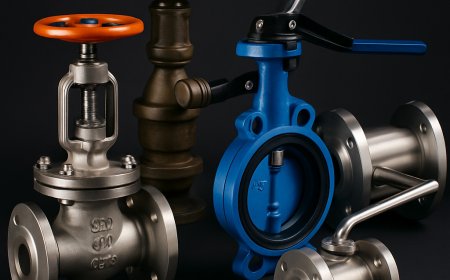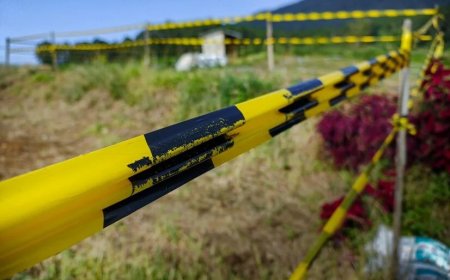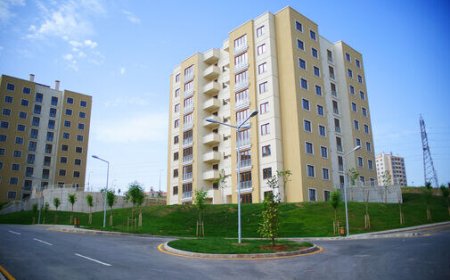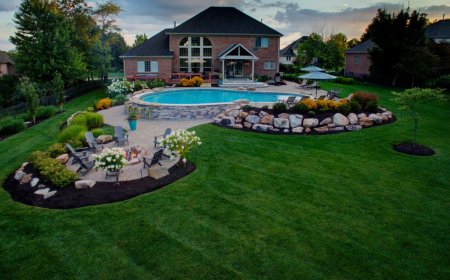How to find the best coffee in Fresno
How to Find the Best Coffee in Fresno Fresno, nestled in the heart of California’s Central Valley, is often overlooked in national conversations about specialty coffee. Yet beneath its agricultural surface lies a quietly thriving coffee culture—roasteries tucked into historic downtown buildings, independent cafés serving single-origin pour-overs, and local roasters sourcing beans directly from eth
How to Find the Best Coffee in Fresno
Fresno, nestled in the heart of California’s Central Valley, is often overlooked in national conversations about specialty coffee. Yet beneath its agricultural surface lies a quietly thriving coffee culture—roasteries tucked into historic downtown buildings, independent cafés serving single-origin pour-overs, and local roasters sourcing beans directly from ethical farms across Latin America and East Africa. Finding the best coffee in Fresno isn’t about following trends or visiting the most Instagrammed spot; it’s about understanding the craft, knowing where to look, and engaging with the community that makes it all possible. Whether you’re a longtime resident, a recent transplant, or a traveler passing through, this guide will equip you with the knowledge, tools, and strategies to uncover Fresno’s hidden coffee gems and elevate your daily brew from ordinary to exceptional.
Step-by-Step Guide
1. Define What “Best” Means to You
Before you step into your first café, pause and ask yourself: What makes coffee “best”? For some, it’s bold, dark roast flavor with chocolatey undertones. For others, it’s the bright acidity of a washed Ethiopian bean or the creamy mouthfeel of a perfectly pulled espresso. Some prioritize sustainability, while others value ambiance, speed, or community connection. The best coffee in Fresno isn’t a single answer—it’s a personal journey. Start by identifying your preferences:
- Do you prefer drip, espresso, cold brew, or French press?
- Are you drawn to light, medium, or dark roasts?
- Do you value transparency in sourcing (e.g., direct trade, organic, fair trade)?
- Is the experience as important as the cup—the atmosphere, the barista’s knowledge, the local art on the walls?
Answering these questions will help you filter options and avoid wasting time in places that don’t align with your values. Write down your top three priorities. You’ll return to them as you explore.
2. Research Local Roasteries, Not Just Cafés
Many of Fresno’s best coffees come not from chain cafés but from independent roasteries that roast in-house and distribute to local businesses. These roasteries often have more control over quality, freshness, and ethical sourcing. Start by compiling a list of known local roasters:
- Valley Roast Coffee Co. – Based in downtown Fresno, they roast small batches using a vintage Probat drum roaster and focus on single-origin beans from Guatemala and Colombia.
- Blackbird Coffee Roasters – A family-owned operation with a focus on direct relationships with farmers in Peru and Ethiopia. They offer weekly drop-offs at local farmers markets.
- Grounds for Change Coffee – A nonprofit roastery that employs individuals transitioning out of homelessness, with all proceeds reinvested into community programs.
Visit their websites and social media pages. Look for roast dates on their product listings—freshness is critical. Coffee is at its peak 7–21 days after roasting. Avoid any brand that doesn’t display roast dates. If a café serves coffee without naming the roaster, that’s a red flag.
3. Visit Farmers Markets and Pop-Ups
Fresno’s farmers markets are not just for produce—they’re hotspots for emerging coffee talent. The Fresno City Farmers Market on Saturdays and the Fresno State Farmers Market on Thursdays often feature rotating coffee vendors. These pop-ups give you direct access to roasters who may not yet have a storefront. Talk to them. Ask:
- Where are your beans from?
- How long ago were they roasted?
- Can I taste a sample?
Many vendors offer free tastings. This is your chance to compare flavor profiles side by side. You might discover a small-batch Ethiopian Yirgacheffe that tastes like bergamot and jasmine—something you’d never find in a supermarket.
4. Explore Neighborhood Cafés Beyond Downtown
While downtown Fresno has a growing café scene, some of the most authentic coffee experiences lie in neighborhoods like the Tower District, North Fresno, and Southeast Fresno. These areas often host independent cafés run by passionate owners who treat coffee as an art form, not a commodity.
For example:
- The Daily Grind in the Tower District uses a La Marzocco Linea PB and grinds beans fresh for every order. Their baristas are trained in SCA (Specialty Coffee Association) protocols.
- La Taza in Southeast Fresno, run by a Mexican immigrant family, serves traditional Mexican café de olla alongside pour-overs from Oaxacan beans—blending heritage with modern craft.
- Bean & Co. in North Fresno is a vegan-owned café with compostable packaging and a rotating selection of beans from women-led cooperatives in Rwanda and Costa Rica.
Don’t assume the busiest café is the best. Sometimes the quietest spot, with a chalkboard menu and a single espresso machine, is where the magic happens.
5. Learn to Read the Menu and Ask the Right Questions
A great coffee shop will have a menu that tells a story. Look for:
- Specific origin names (e.g., “Finca El Mirador, Huehuetenango, Guatemala”) rather than vague terms like “Premium Blend.”
- Processing methods: washed, natural, honey—each affects flavor dramatically.
- Altitude and varietal: Bourbon, Typica, Geisha—these tell you about the bean’s genetics and terroir.
When you order, ask:
- “What’s your current single-origin?”
- “How long ago was this batch roasted?”
- “Do you have any beans from a new producer you’re excited about?”
Baristas who are proud of their coffee will light up answering these questions. If they hesitate, look elsewhere. Knowledge is a sign of care.
6. Taste with Intention
Don’t just drink your coffee—taste it. Follow these steps:
- Smell the dry grounds before water is added. Do you detect fruit, nuts, spice?
- Smell the bloom—the first burst of aroma when hot water hits the grounds. This reveals the coffee’s freshness and complexity.
- Sip slowly. Let it coat your tongue. Is it sweet? Acidic? Bitter? Does the flavor evolve as it cools?
- Notice the aftertaste (finish). Does it linger pleasantly, or vanish quickly?
Keep a simple journal: note the café, roast date, origin, and your impressions. Over time, you’ll start recognizing patterns—maybe you consistently prefer high-altitude, washed-process beans from Central America. This self-awareness is the foundation of finding your personal “best.”
7. Join Local Coffee Communities
Fresno has a growing community of coffee enthusiasts. Look for:
- Fresno Coffee Club – A monthly meetup at rotating cafés where members taste and discuss new beans.
- Reddit’s r/Fresno – A surprisingly active thread on coffee recommendations, often with photos and roast dates.
- Instagram hashtags – Search
FresnoCoffee, #FresnoCoffeeScene, #CentralValleyCoffee. Follow local baristas and roasters.
These communities offer real-time updates on limited releases, pop-ups, and new roasters. They’re also great for asking questions like, “Has anyone tried the new Panama Geisha from Blackbird?”
8. Visit Roasteries for Tastings and Tours
Some Fresno roasteries offer public tastings or behind-the-scenes tours. Valley Roast, for instance, hosts “Roast & Sip” events every other Saturday. You’ll see the roasting process, smell the beans as they develop, and sample brews from the same batch. These events are educational and immersive. You’ll learn how roast level affects flavor, how humidity impacts development, and why freshness matters more than brand names.
Even if you don’t attend a tour, many roasteries have tasting rooms or open houses. Go during off-hours for a quieter experience and more one-on-one time with the roaster.
9. Experiment at Home
To truly understand what makes coffee great, brew it yourself. Invest in:
- A burr grinder (not blade)—consistent grind size is essential.
- A gooseneck kettle—for precise water flow during pour-over.
- A scale and timer—accuracy transforms your brew.
Try brewing the same coffee with different methods: French press, Aeropress, pour-over. Notice how each highlights different notes. This practice deepens your palate and helps you identify what you’re tasting in cafés.
10. Support and Advocate
The best coffee in Fresno exists because of people who care. Support roasteries that pay farmers fairly, use compostable packaging, and train their staff. Leave reviews on Google and Yelp that mention specifics: “The Ethiopian Yirgacheffe had notes of lemon verbena and a syrupy body—excellent.” This helps others find quality and encourages cafés to maintain standards.
Ask your favorite café if they’d consider carrying beans from a local roaster you love. Your voice matters.
Best Practices
1. Prioritize Freshness Over Brand Recognition
Never assume a well-known name equals quality. A national brand might source beans from multiple countries, roast in bulk, and ship across the country—resulting in stale, inconsistent coffee. In Fresno, the best coffee is almost always local, roasted within the past two weeks, and sold in small batches. Always check the roast date. If it’s not listed, ask. If they don’t know, move on.
2. Avoid “Coffee” That Isn’t Actually Coffee
Some cafés offer “coffee” made from pre-ground, mass-produced beans stored in open bins for weeks. These lose aroma and flavor rapidly. True specialty coffee is ground fresh for each order. Look for cafés with visible grinders and baristas who grind immediately before brewing.
3. Understand Roast Levels
Light roast doesn’t mean weak. It means the bean’s origin characteristics are preserved—floral, fruity, tea-like. Dark roast is bold, smoky, and chocolatey, but can mask origin flavors. Medium roast is often the sweet spot. The best coffee in Fresno isn’t defined by darkness—it’s defined by balance and intention.
4. Pay Attention to Water Quality
Even the finest beans can be ruined by poor water. Most cafés in Fresno use filtered water, but if you’re brewing at home, consider a simple pitcher filter. Hard water can mute flavors and create bitterness.
5. Be Patient with New Roasters
Fresno’s coffee scene is evolving. New roasteries open regularly. Don’t dismiss a place just because it’s new. Some of the most exciting coffees come from first-time roasters who are hyper-focused on quality.
6. Don’t Judge by Price Alone
Expensive doesn’t always mean better. A $12 pour-over might be overpriced if the beans are roasted three months ago. Conversely, a $6 espresso from a small roastery using fresh, direct-trade beans might be the best value in town. Judge by quality, not cost.
7. Respect the Craft
Baristas are trained professionals. Don’t ask them to “make it stronger” or “add more sugar” without first tasting it. If you don’t like the flavor, ask why it tastes that way. You might learn something. Respect the effort behind the cup.
8. Support Ethical Sourcing
The best coffee is grown, harvested, and processed with care. Look for roasters who name their farms, share photos of producers, and explain their pricing. If a roaster can’t tell you where their beans come from, they’re not sourcing with integrity.
9. Seasonal Awareness
Just like wine or fruit, coffee has harvest seasons. The best beans arrive fresh after harvest—typically between October and March for Central America, and June to September for East Africa. Ask when the current batch was harvested. Seasonal rotation means better flavor.
10. Build Relationships
The best coffee experiences come from connection. Get to know your barista. Remember their name. Ask about their favorite brew. Over time, they’ll start recommending beans tailored to your taste. That’s the magic of local coffee culture.
Tools and Resources
1. Coffee Tasting Wheel
The Specialty Coffee Association’s Coffee Tasting Wheel is an invaluable tool for identifying flavor notes. Download a printable version or use the interactive version online. It helps you move beyond “it tastes good” to “it tastes like ripe peach and dark honey.”
2. Roast Date Trackers
Use apps like Coffee Taster or BeanTracker to log roast dates, tasting notes, and locations. Over time, you’ll build a personal database of what you like.
3. Online Directories
- Good Coffee Finder – A crowdsourced map of independent cafés and roasteries across California, including Fresno.
- BeanBox – Offers curated single-origin beans from small roasters; you can filter by region and see which ones are available in Fresno.
- Fresno Magazine’s “Best of Fresno” – Annual feature on top cafés and roasteries, updated each spring.
4. Online Courses
Free resources like the Specialty Coffee Association’s Coffee Skills Program offer beginner modules on brewing, tasting, and sourcing. Even 30 minutes of learning can transform your appreciation.
5. Local Coffee Events Calendar
Follow the Fresno Coffee Collective on Instagram or sign up for their newsletter. They list:
- Roasting workshops
- Latte art competitions
- Pop-up espresso bars at art galleries
- Bean-to-cup tasting nights
6. Equipment Recommendations
For home brewing, invest in:
- Baratza Encore – A reliable, affordable burr grinder.
- Hario V60 – A classic pour-over cone that highlights clarity and nuance.
- Chemex – Ideal for clean, bright coffees with floral notes.
- Elektra Micro Casa – A manual lever espresso machine for enthusiasts ready to dive deeper.
7. Books for Deeper Learning
- The World Atlas of Coffee by James Hoffmann
- Perfecting Espresso by Scott Rao
- Coffee: A Global History by Jonathan Morris
These books provide context on how coffee is grown, processed, and traded—knowledge that deepens every sip.
Real Examples
Example 1: The Discovery of “El Cielo” from Finca El Mirador
Carlos, a Fresno resident and former corporate employee, began his coffee journey by visiting local farmers markets. At one, he tried a pour-over from Blackbird Coffee Roasters made with beans from Finca El Mirador in Huehuetenango, Guatemala. He noted: “Sweet, like caramelized apple, with a tea-like finish.” Intrigued, he visited Blackbird’s tasting room. He learned the farm is owned by a third-generation family, uses shade-grown methods, and pays 30% above Fair Trade prices. Carlos now buys 2 pounds of “El Cielo” every month and has introduced it to his book club. He says, “It’s not just coffee. It’s a story I get to be part of.”
Example 2: The Rise of Grounds for Change
Grounds for Change began as a pilot program in 2020, training five individuals from Fresno’s homeless population in coffee roasting and customer service. Today, they roast 300 pounds weekly and supply 12 local cafés. Their “Hope Blend” — a medium roast combining beans from Rwanda and Mexico — is now a staple in Fresno schools and libraries. The program doesn’t just sell coffee—it rebuilds lives. Visitors to their roastery often leave with more than a bag of beans; they leave with a deeper understanding of community.
Example 3: The Hidden Gem in North Fresno
On a quiet corner of North Fresno, tucked between a laundromat and a taco stand, is Alma Coffee Co. Run by a former barista from Oaxaca, Alma serves only beans from her family’s small farm. The café has no Wi-Fi, no music, just a single espresso machine and a chalkboard. Customers sit on wooden benches and sip espresso with a side of fresh pan dulce. The coffee is dark, rich, and earthy—with a lingering note of dark chocolate and dried cherry. It’s not fancy. But for many, it’s the most authentic coffee experience in Fresno.
Example 4: The Coffee Club That Changed a Neighborhood
In 2022, a group of Fresno State students started the “Fresno Coffee Club,” meeting every other week to taste and critique new beans. They began posting reviews online. Within months, local roasteries started sending them samples. One roastery, Valley Roast, was so impressed by their feedback that they created a custom blend called “Fresno Student Reserve”—a light roast with notes of jasmine and citrus. The blend sold out in two weeks. The students didn’t just find great coffee—they helped shape it.
Example 5: The Roaster Who Turned a Garage into a Legacy
Marisol, a former teacher, started roasting coffee in her garage in 2021 after her father passed away. He had grown coffee in Chiapas, Mexico, and left her his old roaster. She began selling small batches at farmers markets. Her “Abuela’s Blend” — a medium roast with hints of cinnamon and molasses — became a local favorite. Today, she leases a small warehouse, employs three people, and ships nationwide. Her story is told on her website: “I didn’t start a business. I started a tribute.”
FAQs
What’s the best time of day to get the freshest coffee in Fresno?
Early morning—between 7 and 9 a.m.—is ideal. Most cafés roast fresh batches overnight or early in the day. Beans ground in the morning are at their peak. Avoid late afternoon or evening orders unless you know the café uses daily fresh grinds.
Are there any coffee subscription services available in Fresno?
Yes. Blackbird Coffee Roasters and Valley Roast both offer weekly or biweekly subscriptions with rotating single-origin beans. You can also subscribe through BeanBox, which features Fresno-based roasters in their monthly selections.
Can I buy green coffee beans in Fresno to roast at home?
Most local roasteries sell roasted beans only. However, you can order green beans online from suppliers like Sweet Maria’s or Royal Coffee. Some Fresno coffee clubs organize group buys to reduce shipping costs.
What’s the difference between “specialty coffee” and regular coffee?
Specialty coffee scores 80+ on a 100-point scale by the Specialty Coffee Association. It’s grown at high altitudes, carefully harvested, and processed with precision. Regular coffee is often mass-produced, blended from low-quality beans, and roasted for consistency over flavor. In Fresno, specialty coffee is the norm at independent cafés.
Do any Fresno cafés offer decaf that’s actually good?
Yes. Look for cafés that use the Swiss Water Process, which removes caffeine without chemicals. Blackbird and The Daily Grind both offer Swiss Water decaf that retains flavor complexity. Avoid cafés that serve “decaf” without specifying the process—it’s often low quality.
Is there a coffee festival in Fresno?
Not yet—but one is in development. In the meantime, the “Fresno Coffee Crawl” happens every fall, where 10+ cafés offer limited-edition brews and tasting flights. Follow @FresnoCoffeeCollective for updates.
How can I tell if a café is serious about coffee?
Look for: visible grinders, roast dates on packaging, baristas who can explain origin and processing, and a rotating selection of beans. If the menu has only “dark roast” and “light roast” with no specifics, it’s likely not a specialty shop.
Can I visit a roastery to learn how to roast my own beans?
Some, like Valley Roast, offer weekend workshops for beginners. These cover equipment, roast profiles, and cupping techniques. Contact them directly—spaces are limited.
What’s the most underrated coffee spot in Fresno?
Many say it’s Midtown Mornings—a tiny counter in a converted gas station. No seating. No website. Just a man who roasts beans in a 1970s popcorn popper and serves espresso in ceramic mugs. He doesn’t take credit cards. But his coffee? Unforgettable.
Should I tip baristas in Fresno coffee shops?
Yes. Baristas are skilled professionals. A $1–$2 tip on a $6 coffee is appreciated and helps sustain the craft. In a city where many coffee jobs are underpaid, every dollar counts.
Conclusion
Finding the best coffee in Fresno isn’t about checking off a list of popular cafés. It’s about curiosity, connection, and care. It’s about asking questions, tasting intentionally, and supporting the people who grow, roast, and pour with pride. The coffee scene here is young, vibrant, and deeply human. It’s not dominated by corporate chains or fleeting trends—it’s built by farmers, artists, immigrants, and neighbors who believe that a great cup can change a day, a neighborhood, even a life.
Start small. Visit one café. Ask one question. Taste one new bean. Keep a note. Return. Build a relationship. Over time, you’ll not only find the best coffee in Fresno—you’ll become part of its story. And in a world that often feels rushed and impersonal, that’s a rare and beautiful thing.

































